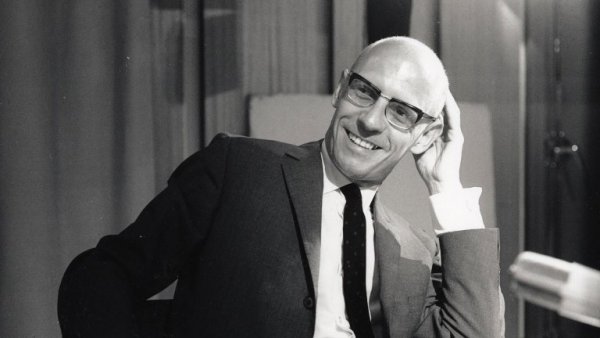Self-Care Is a Sign of Freedom, Says Michel Foucault

Michel Foucault was one of the most influential thinkers of the 20th century. His extensive legacy includes critical studies on medicine, psychiatry, social institutions, human sciences and treaties on sexuality. This article attempts to capture the basic concepts that this author developed about self-care as a sign of freedom.
Part of Foucault’s writings are characterized by his deep analyses on the relations of power, discourse and knowledge, which have merited extensive and heated debates. His critical and authentic attitude toward modernity makes him one of the most-read authors and a key reference in issues related to the humanities.
The human being spends the first half of his life ruining health and the other half trying to restore it.
-Joseph Leonard-
In general terms, Foucault refers to self-care as a sign of freedom. He points out the importance of the body-mind as a transcendent and singular unit. We exist to generate self-awareness and responsibility over our own lives. For this, it is necessary to carry our a learning process and go through countless situations where that learning is put into practice.
Preparing for self-care
For Foucault, the soul is comparable to the subject. As as a subject, we cannot ignore nor pretend to ignore the challenges that existence implies. For this reason, it gives special importance to preparing for adult life. This involves, among other things, having the ability to identify the errors and harmful habits that accompany our passage through the world.

Self-care is something that only the subject itself can provide. It is a way of belonging to oneself, of “being me.” For Foucault, this is only possible depending on the relationship we establish with truth and knowledge. If this relationship is adequate, the capacity to decide what we reject and what we accept will appear. We also must decide what we keep the same and what we change about ourselves.
Additionally, it raises the importance of maintaining a relationship of growth with others and what surrounds us. This feedback implies learning as a social being. In a complementary way, it invites us to listen, to value the experience of others as a source of knowledge that enriches our being. Passing through the world of others is a referent or equally valuable indirect experience.
Taking care of oneself does not imply an egocentric attitude, but quite the opposite. It means having full awareness of all our potentialities and limitations. You have to feel interest in others, and this is only possible if we have interest in ourselves. This model of thinking encourages us to learn to take care of ourselves and to take reality into our own hands.
Knowledge and action go hand in hand
As an example, the doctor obtains a theoretical and practical learning to exercise his trade in the welfare and care of others. He goes through the different stages and comes to understand that the subject is a unit composed of body and mind. That is to say, when a person incorporates the knowledge of care into his life, he can become one in both senses.

For Foucault, there is an inseparable link between knowledge and action. By experiencing self-care, self-reflection is enhanced. This, in turn, leads to an awareness of emotions and the assimilation of experiences that integrate knowledge. On the other hand, this perception of ourselves as subjects activates our sensitivity and allows us to incorporate it into our actions.
Every philosophy about care demands a search around caring for oneself and others, culminating in the acquisition of wisdom. In this wisdom, the choice of values that give rise to better ways of living take on special relevance. All this as a result of what we chose to be and what we have learned.
A pillar of social relations
The concept of self-care is a sign of freedom, as part of the consciousness and a set of decisions we have made during our life. Additionally, it is constituted as a pillar of social and individual relationships and in the practice of an acquired knowledge. This process takes places in the field of personal and collective communication.

Self-care covers many areas that relate to well-being, such as needs, emotions, health, behaviors, values, etc. We are talking about everything that allows us to improve our quality of life and that does not harm that of others. Therefore, it is fundamental that body and mind form a unity.
Caring for yourself must be a natural and essential behavior for every human being, since this is a determining factor for living in the world. Self-care is an attitude that responds to all our needs, whether they are intellectual, physical, spiritual, emotional, etc. Do not overlook the fact that it is essential to learn to take care of ourselves as the basis of the care we offer to others.
This text is provided for informational purposes only and does not replace consultation with a professional. If in doubt, consult your specialist.








